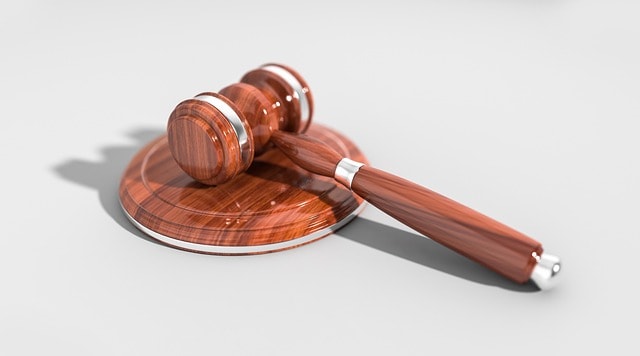
Catastrophic injuries can change a person’s life forever. Unlike minor injuries that heal with time and treatment, catastrophic injuries often involve permanent disabilities, extensive medical care, and long-term emotional and financial consequences. But what are the common causes of catastrophic injuries, and who’s liable?
These are simple questions that most catastrophic injury victims wonder, but hardly know the answer to. Whether resulting from car accidents, workplace accidents, or medical malpractice, understanding the common causes of catastrophic injuries and who may be liable is critical for injury victims seeking compensation.

What Are Catastrophic Injuries?
Catastrophic injuries are severe injuries that lead to long-term or permanent impairments. They impact a person’s ability to work, care for themselves, or enjoy life as they once did. Common catastrophic injuries include:
- Spinal cord injuries
- Traumatic brain injuries
- Severe burns
- Crush injuries
- Amputations
- Severe trauma from vehicular or industrial accidents
- Birth injuries
What This Means For Victims
In legal terms, a catastrophic injury is considered a serious injury that results in life-altering injuries, chronic pain, and sometimes partial or total paralysis.
These injuries often demand lifelong medical care and are recognized in Nevada law under the broader scope of personal injury.
Common Causes of Catastrophic Injuries
Before you consider filing a personal injury claim for a car accident or other serious injuries, you need to know what’s considered catastrophic and its common causes:
1. Motor Vehicle Accidents
Motor vehicle accidents, including car accidents, motorcycle accidents, and truck accidents, are leading causes of catastrophic injuries. These collisions often result in traumatic brain injury, spinal cord injury, or severe burns.
A distracted driver or a high-speed crash can lead to permanent disabilities, such as paralysis or cognitive impairment.
Example:
A Las Vegas driver hits a motorcyclist while texting. The victim suffers a spinal cord injury, requiring multiple surgeries, and lost the ability to walk, resulting in a catastrophic injury claim for lifelong medical care and lost wages.

2. Workplace Accidents
Workplace accidents affect many injured workers each year. Unsafe environments, heavy machinery, and falls from heights often lead to crush injuries, amputations, or spinal cord trauma.
Nevada Revised Statutes (NRS) 616A through 616D govern workers’ compensation claims, but in severe cases involving third-party negligence, a separate personal injury lawsuit may be filed.
3. Medical Malpractice
Medical malpractice includes surgical errors, anesthesia complications, and birth injuries. These can result in catastrophic injuries such as brain injury or spinal cord damage.
Nevada law, under NRS 41A.100, requires expert testimony and adherence to specific procedures when filing a malpractice claim.
4. Pedestrian Accidents and Vehicular Accidents
Pedestrians struck by vehicles often suffer life-threatening injuries. The lack of protection leads to traumatic brain injuries, broken bones, or permanent disability.
In many catastrophic injury cases, the injured person may face mental health challenges, including emotional trauma and post-traumatic stress disorder.
5. Defective Products and Medical Devices
Faulty medical devices, defective medical equipment, and dangerous consumer products can cause devastating injuries. Under Nevada product liability laws, manufacturers and sellers may be held liable for defective design or failure to warn consumers about known risks.
Legal Framework and Liability
Determining liability in a catastrophic injury case involves identifying all responsible parties. These may include:
- Negligent drivers (what triggers catastrophic lawsuits in clear negligence cases)
- Employers who fail to follow safety standards
- Healthcare providers in malpractice cases
- Third party companies involved in faulty product distribution
- Property owners responsible for unsafe premises
Nevada law (NRS 41.130) permits individuals to seek financial compensation when another’s negligence causes harm. For medical malpractice, NRS 41A.071 outlines the requirement of a medical expert affidavit for claims.

Building a Catastrophic Injury Case
Building a successful catastrophic injury case involves extensive preparation. Victims and attorneys must gather:
- Medical records documenting injuries and treatment
- Police reports and witness statements
- Photographic evidence from the accident scene
- Expert medical testimony on long-term impacts
- Financial records showing lost income and expenses
Because these injuries often require lifelong medical care and impact every area of a person’s life, the stakes in these cases are extremely high.
Long-Term Impact of Catastrophic Injuries
Victims of catastrophic injuries frequently endure:
- Permanent disability and reduced mobility
- Emotional pain, including depression, anxiety, and PTSD
- Mental health care needs that may last a lifetime
- Lost income and future earning potential
- Medical bills that can exceed hundreds of thousands of dollars
- Severe complications and extensive medical care
- Emotional distress and mental anguish loss
These impacts are not only physical but also emotional and financial. Families may need to make home modifications, hire caregivers, or even leave their jobs to support a loved one.

Types of Compensation Available
In catastrophic injury claims, victims may be eligible to recover damages for:
- Medical expenses, including surgeries, therapy, co-payments, and lifelong medical care
- Lost wages and diminished future earning potential
- Pain and suffering and emotional distress
- Cost of mental health services
- Permanent disability and rehabilitation
- Wrongful death claims (in fatal injury cases)
The total compensation in catastrophic injury cases is significantly higher due to the severity and lasting consequences of the injury.
Complications in Catastrophic Injury Claims
These claims are complex due to the nature of the injuries and the number of parties involved. Challenges include:
- Proving causation, especially in medical malpractice cases
- Dealing with multiple insurance policies and claim denials
- Calculating future medical costs and lost income accurately
- Navigating bad faith insurance practices, where companies attempt to delay or underpay claims
Experienced catastrophic injury attorneys help address these complications and protect the injured person’s legal rights.
Recommendations for Injury Victims
- Seek immediate medical attention after any severe injury.
- Keep all documentation, including medical records, insurance claims, and bills.
- Contact a catastrophic injury lawyer as soon as possible.
- Avoid early settlement offers that may not reflect the true value of your claim.
- File within Nevada’s statute of limitations, typically two years from the date of the injury.
The Role of a Catastrophic Injury Lawyer
When someone suffers a life-altering injury, the impact extends beyond physical trauma. Catastrophic injuries often lead to long-term or permanent disability, affecting a person’s ability to work, live independently, or enjoy life as they once did.
In these situations, hiring a catastrophic injury lawyer can be crucial to pursuing justice and fair compensation.
Evaluating Your Claim During a Free Consultation
One of the first steps a catastrophic injury lawyer takes is offering a free consultation. This initial meeting helps determine whether you have a valid claim. The attorney will assess the details of the incident, review any available documentation, and provide legal guidance on the next steps. This consultation is both informative and risk-free for the potential client.
Conducting Thorough Investigations
A successful legal claim depends on strong evidence. Catastrophic injury attorneys are skilled in conducting detailed investigations. They gather accident reports, witness statements, photographs, medical records, and other relevant documentation.
In many cases, attorneys also work with private investigators or accident reconstruction experts to establish fault and liability.
Collaborating with Medical and Financial Experts
In catastrophic injury cases, it’s not just about proving who is at fault. Lawyers must also show the full extent of the victim’s injuries and future needs. To do this effectively, attorneys often collaborate with medical professionals and financial experts. These experts help quantify the long-term medical care costs, lost wages, reduced earning capacity, and other damages. This collaboration is key to building a compelling case for compensation.
Filing Lawsuits and Handling Litigation When Necessary
While many injury claims settle out of court, some require litigation. If a fair settlement cannot be reached, a catastrophic injury lawyer is prepared to file a lawsuit and represent the client in court.
They handle all aspects of litigation—from drafting legal documents and presenting evidence to arguing the case before a judge and jury. Their goal is to secure the compensation that reflects the full extent of the victim’s losses.
Negotiating with Insurance Companies to Seek Compensation
Insurance companies are not always eager to pay large claims. They may dispute liability, downplay injuries, or offer low settlements.
A catastrophic injury lawyer knows the tactics insurers use and can negotiate effectively on the client’s behalf. By managing these discussions, attorneys help ensure that victims are not taken advantage of during a vulnerable time.
Working on a Contingency Fee Basis
Most catastrophic injury lawyers operate on a contingency fee basis. This means clients do not have to pay any upfront legal fees. Instead, the attorney only gets paid if they recover damages on the client’s behalf. This arrangement makes legal representation more accessible to those who may already be facing significant financial strain due to their injuries.
Conclusion
Catastrophic injuries have devastating consequences for victims and their families. From spinal cord injuries and traumatic brain injuries to severe burns and emotional distress, the recovery journey is long and complex. Legal representation is not just helpful—it is critical.
By understanding the causes of catastrophic injuries and who may be liable, injured persons can begin the legal process of recovery.
Whether caused by someone else’s negligence, defective products, or medical errors, victims have the right to pursue a catastrophic injury claim and hold the responsible party accountable.
These are not just personal injury claims—they are cases involving catastrophic injury victims who need real solutions to recover from devastating injuries and move forward with their lives.
Seeking Justice for Life-Altering Injuries With BLG
At Bourassa Law Group, we have extensive experience in handling catastrophic injury cases, including those involving spinal cord injuries, traumatic brain injuries, and serious medical malpractice.
Our catastrophic injury attorneys know how to fight for the justice and financial compensation you deserve. If you or a loved one has suffered catastrophic injuries, contact us today for a free consultation.
We’ll evaluate your catastrophic injury case, explain your legal options, and help you navigate the next steps with confidence and compassion.





